The Greatest Classic Science Fiction Short Stories of All Time
Daily Science Fiction!
Original Science Fiction & Fantasy every weekday. Welcome! We publish very short science fiction as broadly defined: sf, fantasy, slipstream, etc. Please read today's short story below. Browse topics in the sidebar, and read what intrigues; subscribe via email to receive each story in your inbox for free; and consider becoming a paying member to ensure we can keep paying authors and providing stories to all.
Someone Call Shadow Control!
Culver hauled the sack of chittering shadows to the back of his truck. "Now, now," he said. "None of that. Y'all should know better than to nest in a Light lady's bird feeder."
One of the shadows said something about the possibility of a dog in Culver's mother's ancestry.
"Now, don't go about assuming," Culver said. "My mother's grandfather was a dove, actually. Great head of feathers, that one. It's where I get my soft skin."
Another of the shadows muttered something else indecent, which Culver decided to just ignore because a Light strode by on the upper sidewalk, and he didn't want the man to think the Shadow Control guy was crazy, talking to himself. The Light's eyes slid over Culver like oil off water and kept on down the street. They didn't associate with those who didn't glow, those too lazy to have been born without light in their eyes. People like Culver.
Culver pushed the big, shifting bag further into the truck bed and pulled up the back end of the truck. A few purple shadow eyes blinked at him through the blackness. The exterminators wove their bags from the vodka strength of the noonday sun, killing the shadows straight off when they stuffed them in the bags. But Culver wove his bags from the strands of dawn, from when the first few beams trailed across the fields, not too bright, but just bright enough that they couldn't slip through the stitches.
He drove back to his house, avoiding the potholes in the lane so as not to jar the shadow-bag. One time a whole three bags had escaped that way, when he hadn't tied the bag well enough, and they had spilled out into the sunlight and disintegrated.
Through the open window to the trailer bed, one of the shadows yelled something about revenge and the various ways that it would tie him up and cut off his fingers, and how dare he even think about bundling them into a sack! It had a cousin who lived under the wall of the city large enough to swallow him whole if he even thought about putting them out in the sun. It paused for a breath, and a little sob.
"Now, now," Culver said. "I'm not here to hurt you."
Enjoying this story? Don't miss the next one!
15 Science Fiction Short Stories To Take You Out of this World
This content contains affiliate links. When you buy through these links, we may earn an affiliate commission.
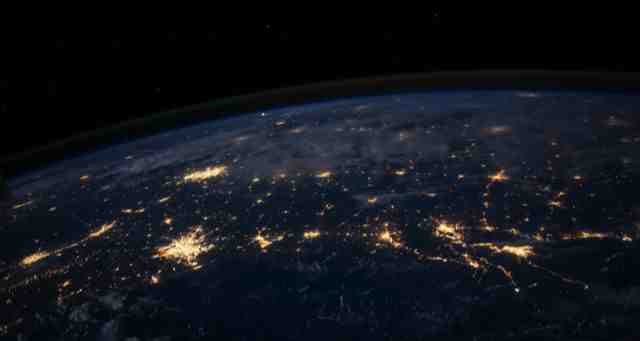
We’re in a new golden age of science fiction, especially science fiction short stories. The generations that grew up with the evolution of smartphones and apps, anime, Pokémon, and ground-breaking video games are now writing fiction—really damn good fiction—with new views and commentary on technology and science that haven’t been seen before.
The Next Level of Science Fiction Short Stories
The below list includes short stories that are accessible online, though I encourage you to buy the collections and anthologies many of these stories appear in. I also encourage you to subscribe to any or all of the illustrious magazines these stories appear in as well.
You may notice the absence of some notable authors like Ray Bradbury and Arthur C. Clarke on this list. That’s intentional. While I included some authors that are long-standing titans of the genre, like Octavia Butler and Ursula K. Le Guin, I wanted to focus on authors that are reinventing science fiction, taking it to new heights, and bending genre lines. In fact, below are stories that are not only science fiction but also fairytales and horror stories. These stories are reflections of our current social and political environment, delve deep into emotional and physical connections, while exploring other worlds, cultures, and timelines.
“Exhalation” by Ted Chiang, Lightspeed Magazine
Let’s start with a master of the science fiction short form. This is the title story for Chiang’s stunning collection Exhalation: Stories, which released in 2019. The entire collection is worth the read, but “Exhalation” is a great entry-point. It follows an alien scientist investigating a curious incident that grows into an astounding discovery with universal consequences. I took from this story as a deep reflection on the loss of natural resources and the depletion of the environment. As with all of Chiang’s work, this story will have you thinking about it, its philosophy, its explorations of self, long after you finish reading the last word.
“Inventory” by Carmen Maria Machado, LitHub
This is dystopian science fiction at its finest. Bone-deep and altering. This is my favorite story in Machado’s collection, Her Body and Other Parties. It is a soul-wrenching story, structured as a list of those the narrator has had sex with, while also telling the story of her fight for survival as an epidemic ravages the nation. It’s a potent story, brilliant in its structure, about forming and breaking connections at the end of the world, while also relaying how our singular world begins, ends, and begins again with love and loss. I’m not ashamed to say I’ve cried every time I read this story. It is as full and desperate for hope as it is heartbreaking.
Swords & Spaceships Newsletter Sign up to Swords & Spaceships to receive news and recommendations from the world of science fiction and fantasy. Thank you for signing up! Keep an eye on your inbox. By signing up you agree to our terms of use
“The Time Invariance of Snow” by E. Lily Yu,
Looking for a science fiction fairytale? Then look no further than Yu’s breathtakingly beautiful work. Split into nine parts, it begins with “The Devil and the Physicist.” Each story is succinct, biting in its language. There are no pulled punches. These are the fairytales for our times, haunting and full of undeniable truth.
Yu is also frequently listed in The Best American Science Fiction and Fantasy series, and also appears many times in The Year’s Best Science Fiction and Fantasy, among many other anthologies. She has a novel coming out in fall 2020 titled On Fragile Waves.
“Smear” by Brian Evenson, Conjunctions
Brian Evenson is a magnificent writer, one of my favorite horror writers, and “Smear” is a perfect mixture of utter dread and paranoia in science fiction. Charles Yu also chose this story for The Best American Science Fiction and Fantasy 2017. A passenger awakes in a vessel on a long journey. The passenger isn’t supposed to be awake, is unable to move, and sees a smear that cannot be wiped away on the passenger’s helmet. Queries to the AI computer are unhelpful and faltering. There’s a growing dread that something is very wrong and there is nowhere to run because there’s no ability to even move.
“In Xanadu” by Lavie Tidhar,
There are so many things in this story that make up what I love about science fiction. Polite robots with attitude. The tension of hearing static silence on the end of a comm. Nila is part of a security force hired by a digital intelligence that has rarely had any need to protect. Nila wants to be a part of something bigger than herself, but has had nothing to fight. What is security is there is no need for it? That is until a routine check goes horribly wrong, and instead of hearing the usual “clear,” from her team members, all she hears is static silence. Then all hell breaks loose.
Tidhar is able to create an action-packed epic adventure in a single story, and now I am desperate to find more of his work.
Kij Johnson is one of my favorite science fiction and fantasy writers. Her collection At the Mouth of the River of Bees: Stories is one of my favorite collections of all time. “26 Monkeys, Also the Abyss” is a near-perfect story. Aimee runs an act in which she makes 26 monkeys disappear on stage after climbing in a bathtub. The monkeys dress up and perform movies on stage (including The Matrix) in addition to their disappearing act. No one knows where the monkeys go; there are hints that the bathtub is a portal or gateway of sorts (which you could argue might be more fantasy than science fiction, but I think it could go either way), but the monkeys always come back. Despite the absurdity of this story, it’s deeply felt, loving, and ends on such a perfect note.
“How to Get Back to the Forest” by Sofia Samatar, Lightspeed
Sofia Samatar can do it all. As of the publication of The Best American Science Fiction and Fantasy 2019, she is the current record holder for the most stories chosen for the BASFF series, with four appearances. “How to Get Back to the Forest” appeared in The Best American Science Fiction and Fantasy 2015, edited by Joe Hill. This story starts out like any summer camp story. Then we start to get bread crumbs from the narrator that something is off. This is set in a future where children go camp to forget their parents. And a girl named Cee claims that there is a bug inside each of them that regulates feelings. It’s an unsettling, brilliant story.
“Homesick” by Sarah Gailey, Fireside Quarterly
Every time I read something by Sarah Gailey, I am thunderstruck by their originality, talent, and depth. “Homesick” is a story that left me gasping for air. It plays with the end-of-the-world scenario of humanity being forced to leave Earth, but then adds a scintillating follow-up question: What if someone was desperate to go back? Sounds like a relatively innocent question, but in this narrator’s case, it’s so much more. It is a sad, heartbreaking story. It also puts humanity in front of a mirror and asks whether we as humans are doomed to succumb to violence wherever we go.
This story is the first story in Anders’s collection Six Months, Three Days, Five Others. It takes a witty approach to the creation and survival of humans. It follows Jon and Toku, who are tasked with observing planets over the course of millions of years. Jon wakes up after about two thousand years of sleep and is notified by the computer that a particular planet—third in line from a particular sun—continues to show activity after a “Closure,” an event that should have ended life on that planet). It’s so much fun to follow the banter between Jon and Toku in this story. I can’t recommend this story enough.
“Articulated Restraint” by Mary Robinette Kowal,
Mary Robinette Kowal is the author of the award-winning Lady Astronaut novels. “Articulated Restraint” is a story revolves around an event that takes place off-stage in the series.
I haven’t yet read The Calculating Stars (it’s on my list!) but I found no problem jumping into the world with this story. In an alternate 1960, Ruby Donaldson goes to work at the The International Aerospace Coalition and finds out there’s an emergency situation on the space station Lunetta. Ruby’s friends and colleagues are on that platform, their lives in danger. Despite her injured ankle, Ruby has 16 hours to don an EVA suit in the Neutral Buoyancy Lab and find a solution.
It’s a story full of tension and perseverance. Now I need to go out and buy these books.
“Requiem Without Sound” by Izzy Wasserstein, Escape Pod
For those of you are interested in audio storytelling, Escape Pod is a science fiction podcast that publishes amazing work. “Requiem Without Sound” is one of the latest episodes from Escape Pod. You can listen to the story on your computer or mobile device and/or read the text online.
“Requiem Without Sound” is about Evie, a created AI who wakes on a ship to find that their maker, Chavez, is no longer alive. Evie watches video files of Chavez. These act as letters to Evie from Chavez on why she created them, and what she hopes Evie will become. It’s about trying to understand the reason for our creation, the strong sense of love and fear for what we create, the isolated silence of loneliness, and the ending message that despite such loneliness, there is still hope.
“Mountain Ways” by Ursula K. Le Guin, Clarkesworld
As one of my favorite writers of all time and as one of the best science fiction writers of all time, it is my duty to include one of Ursula K. Le Guin’s stories on this list. “Mountain Ways” originally appeared in Asimov’s Science Fiction in 1996. Then, it was reprinted in Clarkesworld‘s March 2014 issue. It’s somewhat of a comedy story about relationships and the planet the story is set on is a location Le Guin used in a few of her stories.
The story begins with a note to the reader, laying out the different types of relationships on the planet O. At the end of the note, there’s the line “It’s just as complicated as it sounds, but aren’t most marriages?” This sets the tone for the rest of the story, which is indeed complicated, but we all know that from Le Guin, complicated still makes for a great story.
“Bloodchild” by Octavia Butler,
I can’t write about science fiction short stories without listing “Bloodchild.” I could go for pages on Octavia Butler’s short fiction, but lucky for you, dear reader, fellow Book Riot writer Cassandra Neace already compiled a great selection of Butler’s short fiction in her article “Fierce: The Short Fiction of Octavia Butler.”
“Bloodchild” is about a boy and his family who are humans living on a planet of insect-like creatures called the Tlic. On this planet, humans act as hosts for the Tlic to hatch their offspring. It’s a deeply unsettling story about codependent relationships and their distortions of power. As Neace mentioned in her article, Butler described this story as a reworking on the the traditional invasion story, and her collection Bloodchild and Other Stories is worth reading.
Amber Sparks is a brilliant writer of flash and short fiction. She’s one of my favorite writers ever, mostly because her work cannot be defined under one genre. “13 Ways of Destroying a Painting” appears in Sparks’s glorious collection The Unfinished World, and the podcast Snap Judgement published it as a radio play. The performance about 11 minutes, and is an absolutely genius way of using the time traveller trope in a list structure. There are sound effects and music that really adds the icing on this delicious cake of a story.
Lastly, but certainly not least, a steampunk story by the incomparable N.K. Jemisin. This story was originally published in the anthology in Steam-Powered: Lesbian Steampunk Stories, edited by JoSelle Vanderhooft.
The story follows Jessaline as she seeks to gain a partnership with Norbert Rillieux on a methane extraction mechanism. A mechanism that lead to helping the people of Haiti, a free nation, stay free. Instead of partnering with Norbert, though, Jessaline meets his sister Eugenie. Both clever and ambitious women, sparks fly. It’s a steampunk spy adventure story about Haitian independence. If that doesn’t make you want to drop everything and read, I don’t know what will.
A Final Note On Science Fiction Short Stories
I know there are many more out science fiction stories out there worthy of listing, and I encourage readers to include recommendations to more science fiction short stories in the comments on social media. If you’re interested in reading more free stories online, check out our list here. And if you’ve sated your short form appetite and want to jump to long form science fiction, check out the list of 30 Top Sci-Fi Books on Goodreads.
Finally, as 2019 has come and gone and the road of 2020 ahead of us, I am certain that there will be more science fiction stories that hold up a mirror to the what’s happening around us—politics, people, technology, and our environment—and hold up a lens to explore the world(s) yet to come.
The Greatest Classic Science Fiction Short Stories of All Time
Don’t think you like sci fi? You’ve never truly experienced science fiction if you haven’t read any classic short stories. Here are the 9 greatest science fiction short stories from our special guest, a science fiction expert, who happens to be one of my favorite people.
I have a real treat for you today. Instead of hearing from me, today I have a special guest post … from my dad! Growing up, my dad fed us a steady diet of science fiction. I grew up watching Star Trek, The Outer Limits, and Lost in Space. Even today, whenever he visits, he always brings old black and white sci fi movies to show his grandkids. Think gigantic tarantulas. Who better than my dad to share the best science fiction short stories of all time! While you might be picturing aliens and spaceships at the mere mention of science fiction short stories, science fiction is much more than that. Arthur C. Clarke once said, “Science Fiction is something that could happen – but usually you wouldn’t want it to. Fantasy is something that couldn’t happen – though often you only wish that it could.” If you truly want a taste for science fiction, try out these classic science fiction short stories. They don’t take long to read, but, oh, how well they tell a story in such a short space. You really can’t say you don’t like sci fi until you’ve tried some of these science fiction short stories.
The Top 9 Science Fiction Short Stories
Science Fiction is a genre unto itself. It combines humor, wonderment, inspiration, hope, and entertainment; opening our eyes towards new horizons and personal introspection in a wondrous and believable way. In 1966, the Science Fiction Writers of America (SFWA) instituted the Annual Nebula Award for the year’s best science fiction short stories. However, the SFWA also recognized the immense contributions in the field prior to 1965, and convened a special one-time convention and vote for the greatest science fiction short stories of all time written prior to 1965 (the classics), compiled in “The Science Fiction Hall of Fame” Vol. I. This must-own book for all sci-fi lovers contains the very best stories as voted by the authors themselves. Science fiction short stories (as opposed to novella’s and novels) were limited to 15,000 words or less. The following sci fi short stories are my all-time favorites, including stories not contained in the Hall of Fame final vote.
#1 NIGHTFALL by Isaac Asimov (1941)
Voted by the SFWA as the greatest sci-fi short story of all time. A classic tale of wonderment, paranoia, insanity, and introspection. It masterfully dives into one’s deepest fears and opens the mind to the wonderous possibilities just outside our view. There is also a novel version of this classic; how-ever I would recommend the short story over the novel. Do not miss this one! Asimov is a wonderful writer and this story brings together the very best spirit of sci-fi.
#2 MIMSY WERE THE BOROGROVES by Lewis Padgett (1943)
A top ten finisher in the SFWA vote, this marvelous, very believable story takes one back into the excitement and puzzlement of childhood. The angst, fears, and concern of the parents is something every parent has experienced. With a special ending that absolutely tugs at the heartstrings, this is one story not to be missed.
#3 ARENA by Frederic Brown (1944)
The original “kill or be killed”, man versus alien contest. The storyline was the prototype for many follow-on movies and TV episodes in the 1950’s/60’s. The ultimate guys’ action tale, with twists and turns and a very satisfying ending. Another top ten entry in the SFWA vote.
#4 THE WEAPON SHOP by A.E. van Vogt (1942)
A classic tale of pride, tradition, introspection, tyranny, and freedom. Fara’s journey from obstinate believer to doubter to enlightened awareness is something we all can connect with. The ending is special and engenders the sweet feeling of freedom from oppression. This story was also a top ten entry in the SFWA hall of fame.
#5 THE MILLION YEAR PICNIC by Ray Bradbury (1948)
Bradbury’s “The Martian Chronicles” is a classic compendium of marvelous sci-fi short stories. Although his short story “Mars is Heaven (The Third Expedition)” made the top twenty in the SWFA vote, I would highly recommend the final story “The Million Year Picnic”. Bradbury has a unique writing style; with absolute moments of sheer verbal artistry. Take the time to read “The Martian Chronicles” in its entirety and you will more fully appreciate the superb and poignant ending in the final story.
Save for Later Share
Pin
Tweet
#6 THE LAST QUESTION by Isaac Asimov (1956)
This very short story is classic Asimov, with an interesting storyline and a powerful thought-provoking ending. Although not contained in the SFWA Hall of Fame compendium, you can find this story in another old release “Nine Tomorrows” by Asimov, which is in itself a very fine collection of short stories by the master writer. This particular short story was supposedly his favorite and one of the very best sci-fi has to offer.
#7 A WALK IN THE DARK by Arthur C. Clarke (1950)
The very popular Arthur C. Clarke has legions of followers and placed two stories in the top fifteen of all time (“The Star” and “The Nine Billion Names of God”). With an interesting, whimsical style, coupled with a knack for making the technical seem understandable, he is one of the icons of science fiction. His short story “A Walk in the Dark” is a classic “bump in the night” scary story with an ironic ending. You can find this and other stories in the compendium “The Collected Stories of Arthur C. Clarke”, also a must-have for your library.
#8 MICROCOSMIC GOD by Theodore Sturgeon (1941)
Pure old fashion sci-fi is the name of the game in this story. A classic villain versus unwitting hero tale; highly entertaining with first-rate sci-fi imagination. This story was a top-five entry in the SFWA hall of fame.
#9 RESCUE PARTY by Arthur C. Clarke (1946)
A very appealing story that highlights the indomitable spirit of mankind in the face of enormous challenge. The ending is very satisfying. This story is also available in the “Collected Works of Arthur C. Clarke”.
Last Words on Science Fiction Short Stories

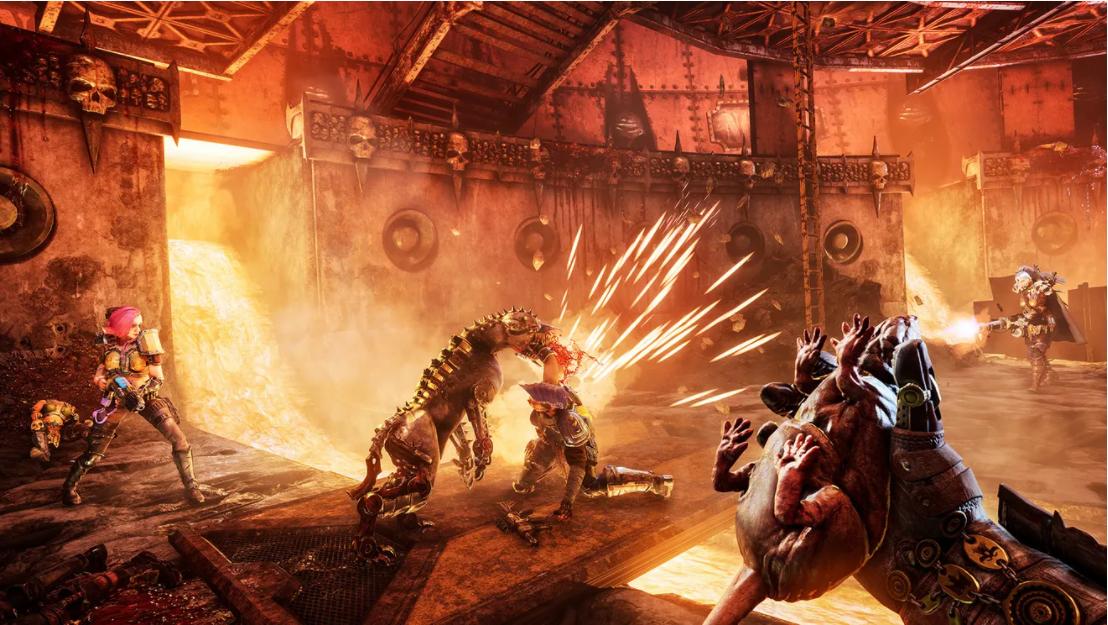
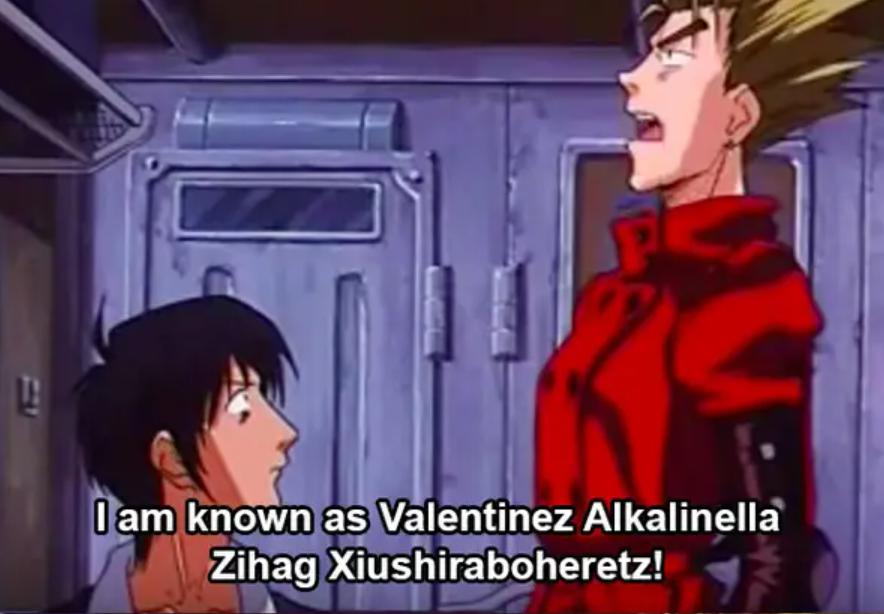


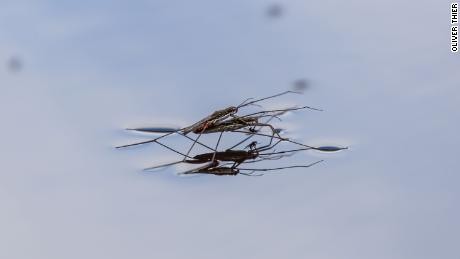
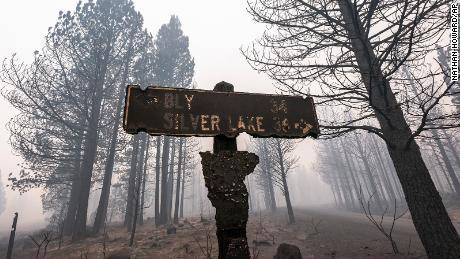




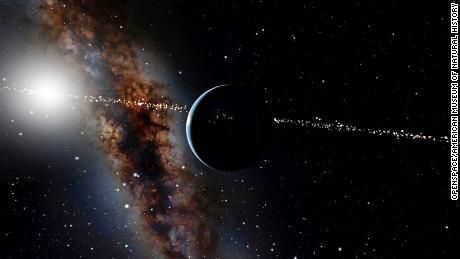
Write a Comment